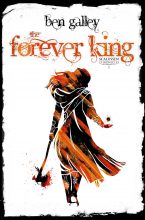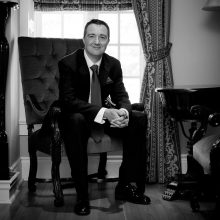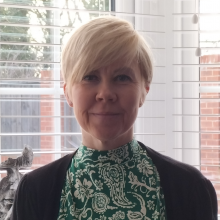Welcome back! How have you changed as a writer since your last authorinterview?
I believe I have! I’m focusing more on what matters to both me and my readers: more books, and content that’s entertaining and fantasy based. I’ve adjusted my schedules and practices to make more time for life as well, such as exploring Canada.
What lessons have you learned from the publishing industry?
There are many answers to that question, but i think the most important of all is to keep going. Keep at it, evolving your strengths and growing your readers in a way that suits you. There’s a lot of challenges from writing to marketing, and while progress can waver at times, or goals are daunting, just keep at it. Sometimes our goals can be a touch impatient compared to industry or market timelines.
What is it about your genre that drew you to it?
I always say the escapism. The ability to do almost anything with your worlds, flora, fauna, and have an unbelievable range of characters, from race, to creed, to ability, and drive. As long as your escapism is rooted in strong characters and plot, emotional entertainment, believability, and intrigue, you can escape anywhere.
What tools do you favour while writing?
Music is a constant and vital tool of mine. I’m always building playlists and putting them on a rate of repeat that is the reason I use headphones, so as not to drive my partner Rachel mad. I use it for setting my mood, setting an environment that is for writing, and for adding a little cinematic feel to certain scenes. Metal and battles are a classic fit.
Are you a Seat-of-your-pantser or an Outliner?
Oh, I’m a heavy outliner. I’m starting to call my plans blueprints. I like to know my world, its history, my characters, and as much as I can before I start writing. That being said, I’ve found myself writing whatever comes to mind when I’m writing the parts between the bulleted structure of my book.
What is the least writer thing you do in your life?
Probably when I’m asking for something like the remote and say “whatsit thingy bastard” or a variation of words that aren’t very writery at all. Other than that, I like to cook, snowboard, scoot, and go a bit mad for kitchen utensils, hi-tops, and pinball machines.
Tell us about your journey finding your “voice”
I call it a mix of my literary diet as a kid as well as my early attempts at writing fantasy. I’ve always tried to go for a more visual voice, if that makes any sense, with description that isn’t – hopefully – overbearing, but paints a vivid picture. Worldbuilding is also one of the big strengths to my voice, inspired by Tolkien, of course, but that was my first entry into fantasy, and LotR has been an inspiration ever since. Finishing several books before I was a teenager also gave me an idea of what’s involved in writing a book, such as keeping that voice running all the way through the prose and plot.
What are some of your most important literary influences? (This can be as wide-ranging as you
like, including various genres and films.)
Film and cinema inspire me about as much as books and fellow authors do. Films have always been a huge love of mine, and there’s too many too mention that have inspired my characters and worlds. In terms of style, word choice, and actual writing, my influences are literary, from Robin Hobb, Joe Abercrombie, Branderson, Mark Lawrence, Anthony Ryan, Neil Gaiman, and originally Brothers Grimm and works of mythology. History also inspires me a lot, and not just when it comes to in-world politics, but certain figures and trends of human nature.
What are some of the real world places, cultures or people that inspired your work?
Mythology has always inspired me, from Aztec and Norse to Japanese and First Nation mythologies. I try to remain inspired instead of stealing, and hope I’ve learned a lot of lessons from fellow authors, readers, and friends on how to avoid simply appropriating. In terms of place, I’m constantly inspired by the natural and human-made world. From mountains to the Burj Khalifa, I’m always looking at google maps, images, and Earth to find new ideas.
What’s your favourite scene in the book you are promoting today?
As I’ll try to avoid spoilers, one of my favourite scenes in The Forever King is where my main character Mithrid not only meets but rides a dragon for the first time. It’s a silly scene but i’m immensely proud of it. Otherwise, there’s a battle scene that is based on a parley and prisoner exchange that goes very wrong for several parties, and it was an intricate scene but it turned out epic.
Tell us about the book you’re promoting.
The Forever King is a dark and norse-inspired epic and a tale of one girl’s quest for revenge in a world far more complicated and dangerous than she thought possible. The book follows Mithrid as she discovers the dark underbelly of the Arka Empire and world that has banned magic. It’s an homage to the chosen one trope with the difference of the chosen one not necessarily being the hero she though she was. It’s also a magic school and siege storyline as the two forces of the world clash. As well as being an entry into the world, The Forever King is also a sequel to my original Emaneska Series, and features some of the same characters.
What led you to self publishing?
The choice and expediency of it, to be honest. Back in 2009, I was working dead-end jobs in hospitality and offices and wanted out ASAP. My original dream was to write books, and so I was determined to achieve it. I was able to publish my debut novel The Written in 2010 and haven’t looked back since thanks to the control I have over my schedule, covers, professionals I work with. Not forgetting I take a much greater royalty from each sale.
What non-writing element of your life affects your writing the most?
I would say sleep and hydration. I would also say the marketing and admin of being an author, which often gets in the way when there’s important elements such as schedules or budgets and ads concerned. Hydration is key to focusing when you do have limited time to focus on admin, and attempting to put writing first.
If you could give yourself 10 years ago a piece of advice what would it be?
Stick to one genre or series first. I went from epic, norse, high fantasy with Emaneska to weird west alternate history with Scarlet Star. I’ve always tried to do something different, but that’s a hard veer to sell to people used to Emaneska. It’s why I went back to epic fantasy with books since, and why I’ve gone back to Emaneska after all these years with The Forever King.
If you’ve written a series, what is different about writing a series to a standalone?
There’s one standalone book in my backlist in between three series, and the main aspect is the length and the need to create a plot that spans several books. You could argue it’s easier in that sense, but it can be hard to contain the plot to a satisfying resolution when you’re working with epic fantasy – or fantasy in general. I like to create deep worlds, which isn’t sometimes necessary for a standalone, so it was difficult to balance length with ambition and depth for my standalone The Heart of Stone.
See Ben’s first interview here
Other interviews with Ben Galley
👋 Hi! I run Author Interviews
As a new writer I found myself itching to contribute to a thriving, creative community, so I made Author Interviews and I've met loads of wonderful people in the process. You can buy my debut fantasy RINGLANDER: THE PATH AND THE WAY from Amazon.


 Audible
Audible



